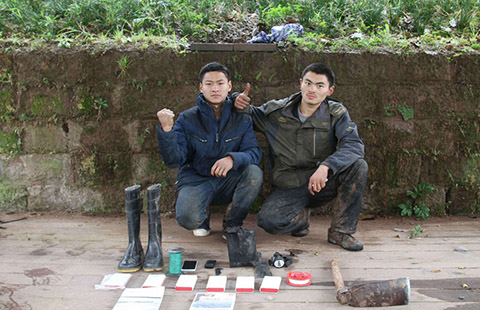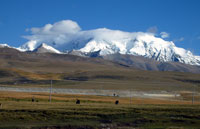Sea renaming is politically short-sighted
(Xinhua) Updated: 2012-09-13 22:35BEIJING -- Despite China urging the Philippines to ease tensions over Huangyan Island and promote bilateral ties, the country has officially named maritime areas near its coast, including part of China's territories in the South China Sea, the "West Philippine Sea."
The move by the Philippines is indicative of nothing but the country's political short-sightedness.
On Wednesday, the Philippine government released an administrative order signed by President Benigno Aquino III, declaring that South China Sea waters off the country's west coast would be named the "West Philippine Sea," including the waters around, within and adjacent to the Nansha Islands, known as "Kalayaan" in the Philippines, and Huangyan Island, or "Bajo de Masinloc" in the Philippines.
By making the declaration at a time when China is busy dealing with Japan's so-called "purchase" of the Diaoyu Islands, the Philippines may gain some superficial pleasure for the time being, but the move will only further damage bilateral ties while offering no substantial benefits.
The Chinese Ministry of Foreign Affairs (MFA) issued a response to the naming, saying the "South China Sea" is a name commonly recognized by the international community and widely accepted by countries across the globe and international organizations such as the United Nations.
Hong Lei, spokesman for the MFA, said the Philippines' move cannot change the fact that China claims indisputable sovereignty over islands in the South China Sea, including the Nansha Islands and Huangyan Island, as well as their surrounding waters.
Wednesday's announcement worsened Chinese sentiment toward the Philippines, which already damaged bilateral relations in April when a Philippine warship harassed 12 Chinese fishing vessels that had sailed near Huangyan Island to seek shelter from inclement weather.
Although the Chinese side remains firm in its stance of safeguarding territorial integrity, it has always been committed to resolving the issue through bilateral consultations. The Philippines' latest provocation obviously ignores the restraint China has exhibited on the issue.
In earlier rounds of contention, the Philippines said some of their exported bananas to China, the recipient of over half of the country's total banana exports, failed stricter quarantine inspections at customs, fanning complaints from Philippine farmers and dealers.
In May, Chinese travel agencies canceled all group tours to the Philippines. Although Chinese tourists are said to take up only a small fraction of total travelers to the Philippines, their rising spending power should not be neglected by a country only a strait away.
China is the Philippines' third-largest trade partner, but its exports to the Philippines account for less than 1 percent of China's total.
It is is worth noting that while benefiting from wide-ranging economic exchanges with China, countries like the Philippines repeatedly confront China on political and territorial fronts -- risky moves that often infuriate the Chinese.
The unilateral naming of maritime areas by the Philippines this time also undermines the government's diplomatic efforts.
At a meeting for foreign ministers of the Association of Southeast Asian Nations (ASEAN) member states in July, member countries agreed on a statement on the South China Sea issue that is in line with China's determination to turn the disputed waters into a sea of peace, friendship and cooperation.
Leaders of the Philippines should learn to be more mature players in the international political arena and abandon provocative pursuits. Enditem
- Hopes voiced for next five years
- Efforts urged to improve money laundering law
- Luring shoppers home with quality
- China cuts red tape on intermediary services for administrative approval
- Unique brown panda survives winter
- Govt office set up to protect juveniles
- China preparing to raise retirement age: report
- China to launch second space lab Tiangong-2 in Q3
- Behind China's rising divorce rate: impulse or relief?
- G20 finance ministers to avoid competitive currency devaluation







